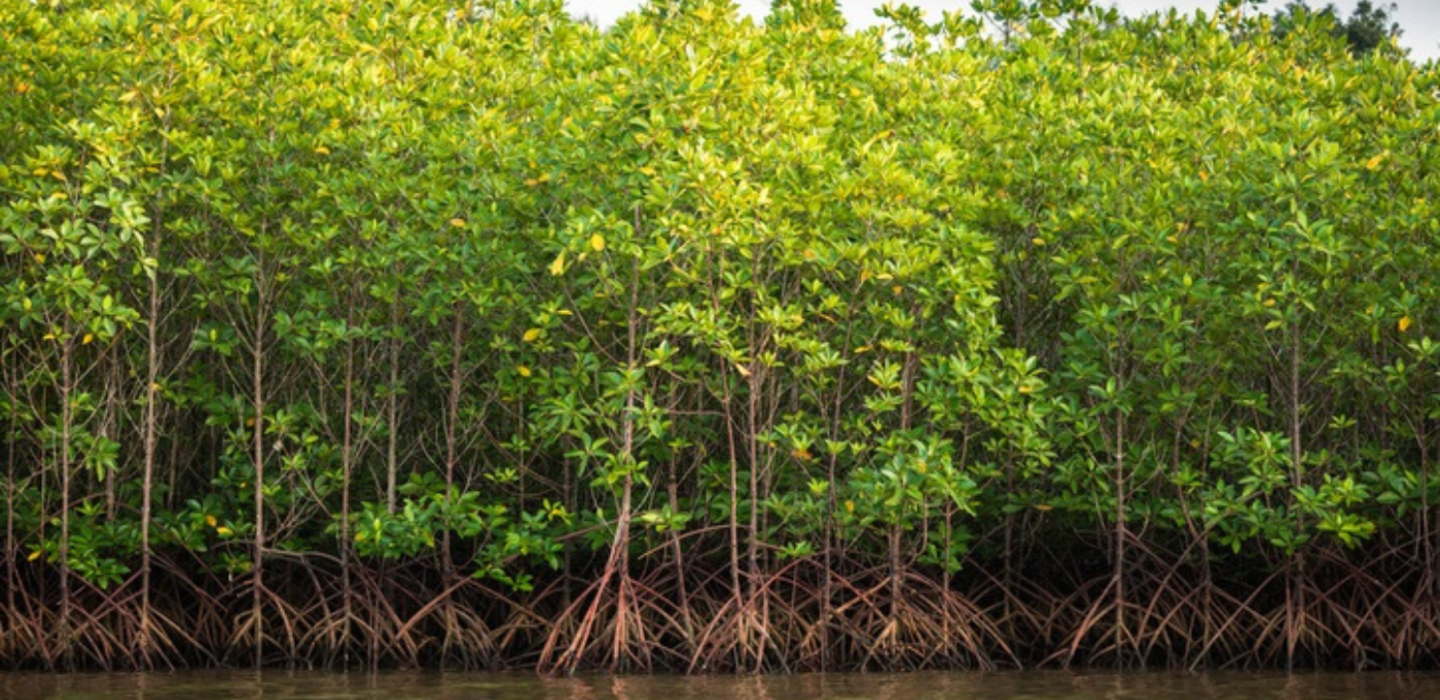Cultivating Coastal Trees Could Help Save Suriname
Perched atop the northern coast of South America, Suriname is the smallest country on the continent, yet the Lions there have taken on a big role in fighting climate change.
Planting mangrove trees prevents the rich soil from being washed away by the oceans.
Loss of the natural mangrove forests has led to erosion of Suriname’s muddy coastline. Fed by silt washed from the mouth of the Amazon River, the land should be growing, not disappearing. But dikes erected in the 1960s to build a highway connecting the east and west coasts of the country cut straight through wetlands where fresh water and saltwater mix. The mixed water — called sweet water — is where mangroves thrive. Without the trees’ roots to bind the silt, much of the fertile soil is washed away.
One of the most important and productive ecosystems on earth, healthy mangroves can not only provide coastal communities with a sustainable living, but they protect coastlines from natural disasters and, according to the Mangrove Action Project, are capable of capturing more carbon per hectare than any other type of forest.
The Paramaribo Central Lions Club has been supporting the Mangrove Project of the Anton de Kom University of Suriname under the direction of the Hydrologist Professor S. Naipal since 2015.
“The erosion of the coastline infringes on the agriculture land,” writes club chairperson Glenn Tewari. “Planting mangrove trees prevents the rich soil from being washed away by the oceans.” Residents of Suriname rely on the fertile soil for agriculture to produce food, but the constant flooding due to erosion has made farming difficult.
Professor Naipal has been on a mission to save the coastline — and thus preserve the livelihood of Suriname’s resident farmers as well as the precarious ecosystem that depends on them. And Lions have stepped in to help. Naipal’s rescue mission to repair the damage caused by human development involves constructing scaffolding in the muddy waters to trap sediment so that there is enough mud for the mangroves to take root. Once the newly planted mangroves are established, they prevent the ocean from washing away the soil.
The plants are grown in special greenhouses from seeds gathered along the coast. Once ready, the seedlings are planted in the mud with splints to protect them from the waves.
Lions donated the specific kind of water-resistant wood required to build the scaffolding and ensure that it makes its way to the building site. They also donated the wood to build the greenhouses where the seedlings grow and assist in planting the mangroves. “We work with nature, for nature,” writes Tewari. “The wood comes from the hinterland to help restore and protect nature in the coastal plain. The club is hoping their work will provide better protection for endangered species such as the Flamingo and Scarlet Ibises, birds that thrive in the brackish coastline waters.
Once the coastline is stabilized, the land can be farmed again, and the people of Suriname can have a more dependable local food source.
Lions of Paramaribo Central have taken on the project because they know how important a healthy coastline is to their community. More than 90 percent of Suriname’s population lives along the coast. And they’ve partnered with many local organizations, including lumberjacks, in addition to the university in order to properly carry out the replanting.
“The only know-how is in constructing the infrastructure required for saving the soil,” says Tewari. “Nature does the rest.”
The Paramaribo Central Lions Club is one of the 2021 Kindness Matters Service Award winners. For more stories and to check out a list of all the winners, visit lionsclubs.org/KMSA.
Erin Kasdin is the senior editor of LION Magazine.
The coronavirus (COVID-19) pandemic has impacted communities around the world in different ways. To ensure we’re serving safely wherever we live, Lions should follow the guidelines of the Centers for Disease Control, World Health Organization or local health authorities. Visit our Serving Safely page for resources that can help you safely serve your community.

